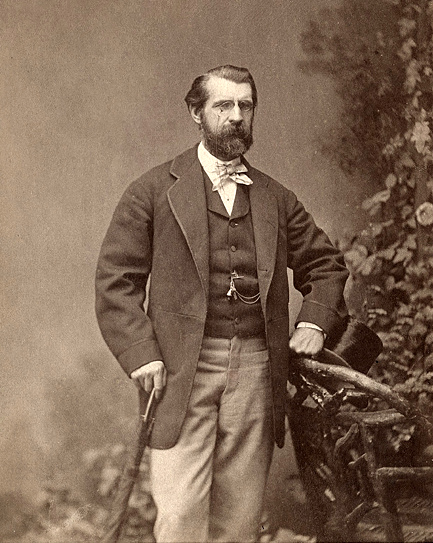In this 2014 mock trial, attorney Jack Casey opened for the Livingston side with splendid readings from Frost, Chaucer, and Bob Dylan.
Moore's lawyer E. Stewart Jones Jr. said many fine things as well, including this at 21:30:
Moore's lawyer E. Stewart Jones Jr. said many fine things as well, including this at 21:30:
"Mr Casey has spent so much time in his legal career, in Albany with the state legislature, that he's mastered the art of historical revision."Elvis showed up, and Santas with saxes. Alas, the evidence of Moore's published letter to the editor of the New York American (March 1, 1844) was not available at the time of this trial. (Found in January 2017, in microfilm of the New-York American at NYPL: *ZY 86-140 Reel 17, Mar 1-Dec 28, 1844). In this 1844 letter Moore reveals that he personally gave "A Visit from St Nicholas" with several other poems to the publisher of The New-York Book of Poetry in 1837. Here it is again, for the record.
 |
| New York American - March 1, 1844 |
LINES TO ST. NICHOLAS.--The following note from our friend C. C. Moore, the author of those lines which every child among us delights to hear, about Christmas, and which parents with not less delight recite, brings to our notice, one of the boldest acts of plagiarism of which we have any recollection. We ask the National Intelligencer to have the goodness to insert Mr. Moore's note--and if possible to elucidate the mistake, if such it be, or fraud attempted in respect of such well known lines.
New York, Feb. 27, 1844
Dear Sir--My attention was, a few days ago, directed to the following communication, which appears in the National Intelligencer of the 25th of December last.
"Washington, Dec. 22d, 1843.
Gentlemen--
The enclosed lines were written by Joseph Wood, artist, for the National Intelligencer, and published in that paper in 1827 or 1828, as you may perceive from your files. By republishing them, as the composition of Mr. Wood you will gratify one who has now few sources of pleasure left. Perhaps you may comply with this request, if it be only for 'auld lang syne.'"
The above is printed immediately over some lines, describing a visit from St. Nicholas, which I wrote many years ago, I think somewhere between 1823 and 1824, not for publication, but to amuse my children. They, however, found their way, to my great surprise, in the Troy Sentinel: nor did I know, until lately, how they got there. When "The New York Book" was about to be published, I was applied to for some contribution to the work. Accordingly, I gave the publisher several pieces, among which was the "Visit from St. Nicholas." It was printed under my name, and has frequently since been republished, in your paper among others, with my name attached to it.
Under these circumstances, I feel it incumbent on me not to remain silent, while so bold a claim, as the above quoted, is laid to my literary property, however small the intrinsic value of that property may be.
The New York Book was published in 1827 [1837].
Yours, truly and respectfully,
CLEMENT C. MOORE
Chas. King, Esq.Related posts:
- National Intelligencer requested to correct mistaken attribution
http://melvilliana.blogspot.com/2016/10/national-intelligencer-requested-to.html
- How we know Clement C Moore wrote The Night Before Christmas
http://melvilliana.blogspot.com/2017/05/how-we-know-that-clement-c-moore-wrote.html
- Key witness letter by Livingston cousin
http://melvilliana.blogspot.com/2018/02/key-witness-letter-by-livingston-cousin.html
- Computer error, please try again
http://melvilliana.blogspot.com/2016/11/computer-error-please-try-again.html
- Eight great favorite expressions of Clement C. Moore
http://melvilliana.blogspot.com/2017/04/eight-great-favorite-expressions-of.html
- Dunder-Donder, Blixem-Blixen, Dunder Mifflin, Donder and Blitzen
http://melvilliana.blogspot.com/2017/03/dunder-donder-blixem-blixen-dunder.html
- Pre-1844 attributions to Clement C. Moore
https://melvilliana.blogspot.com/2018/08/pre-1844-attributions-of-visit-from-st.html






